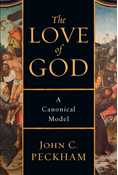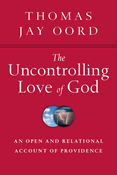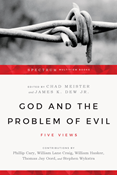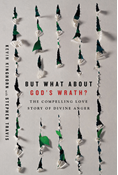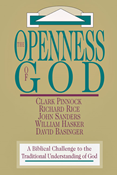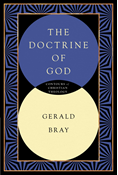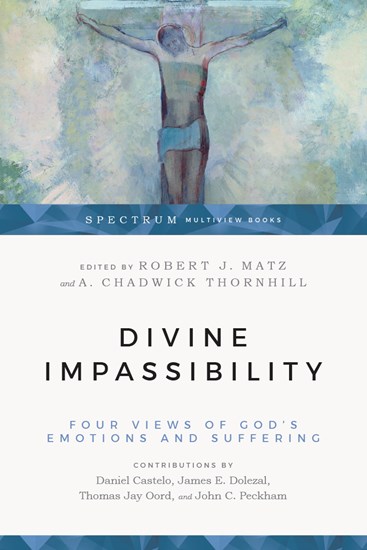
|
Divine Impassibility
paperback
|
- Length: 200 pages
- Dimensions: 6 × 9 in
- Published: August 13, 2019
- Imprint: IVP Academic
- Item Code: 5253
- ISBN: 9780830852536
-
Other Retailers:
Amazon*
*affiliate partner
Does God suffer? Does God experience emotions? Does God change? How should we interpret passages of Scripture that seem to support one view or the other? And where do the incarnation and Christ's suffering on the cross fit into this?
This Spectrum Multiview volume brings together four theologians with decidedly different answers to these questions. The contributors make a case for their own view—ranging from a traditional affirmation of divine impassibility (the idea that God does not suffer) to the position that God is necessarily and intimately affected by creation—and then each contributor responds to the others' views.
The lively but irenic discussion that takes place in this conversation demonstrates not only the diversity of opinion among Christians on this theological conundrum but also its ongoing relevance for today.
Views and Contributors:
- Strong Impassibility (James E. Dolezal, assistant professor in the School of Divinity at Cairn University)
- Qualified Impassibility (Daniel Castelo, professor of dogmatic and constructive theology at Seattle Pacific University)
- Qualified Passibility (John C. Peckham, professor of theology and Christian philosophy at Andrews University)
- Strong Passibility (Thomas Jay Oord, professor of theology and philosophy at Northwest Nazarene University
Spectrum Multiview Books offer a range of viewpoints on contested topics within Christianity, giving contributors the opportunity to present their position and also respond to others in this dynamic publishing format.
"In this volume, we are treated to a wonderful dialogue on an often-neglected topic in theology. Matz and Thornhill have assembled a capable group of scholars who not only provide a stimulating set of perspectives on this issue but who do so with winsomeness and grace. An excellent addition to the Spectrum series!"
"The doctrine of divine impassibility—in some form or other—is an inheritance of the Christian tradition. It is also the subject of much disagreement and debate within recent theology. In this book, this debate is carried forward in a vigorous and very spirited manner as arguments are made from biblical and philosophical theology even as pastoral and experiential concerns are weighed. Anyone interested in the current state of evangelical theological debates about the doctrine of God will find this work enlightening."
"The doctrine of divine impassibility, according to which God is without passions and without emotional change, has a long and distinguished history. Yet it has been subject to sustained criticism in much of modern theology. Does God feel nothing when we suffer? Can such a God be worthy of worship? The editors of this book are to be congratulated for putting into the hands of readers a one-stop-shop overview of this debate. It includes contributions from across the theological spectrum with representative scholars writing in a dialogical format. This way readers quickly get a sense of the central issues in the debate from different perspectives in the discussion. The result is a clearly written symposium from which scholars and students alike will benefit. I heartily recommend it!"
"Rigorous engagement with the doctrine of divine impassibility has experienced something of a resurgence in recent years. Though perhaps unfamiliar to many laypersons, the various assessments of this doctrine are of no little consequence to our faith and practice. The editors of this volume have assembled a premier group of authors, who in conversation with one another, have done a fine job of introducing and spelling out many of the aspects of the contemporary debate over divine impassibility in a manner that is not only lively and stimulating but also broadly accessible. Each of the four authors adeptly unpacks the hermeneutical, methodological, philosophical, historical, and theological commitments undergirding his perspective. In tracking those arguments, readers will not only gain a better understanding of each perspective on divine (im)passibility but they will also observe how each view intersects with other key doctrines and proposes practical benefits to our growth as Christians. The editors and authors of Divine Impassibility: Four Views of God's Emotions and Suffering have performed a great service in making this conversation available. I am not aware of a better on ramp for getting up to speed on the current discussion than this volume."
CONTENTS
Acknowledgments
Introduction: Four Views on Divine (Im)Passibility: Robert J. Matz and A. Chadwick Thornhill
1. Strong Impassibility: James E. Dolezal
Responses to Strong Impassiblity
Concluding Remarks in Defense of Strong Impassibility
2. Qualified Impassibility: Daniel Castelo
Responses to Qualified Impassiblity
Concluding Remarks in Defense of Qualified Impassibility
3. Qualified Passibility: John C. Peckham
Responses to Qualified Passiblity
Concluding Remarks in Defense of Qualified Passibility
4. Strong Passibility: Thomas Jay Oord
Responses to Strong Passiblity
Concluding Remarks in Defense of Strong Passibility
Conclusion: Robert J. Matz and A. Chadwick Thornhill
Bibliography
Contributors
General Index
Scripture Index


